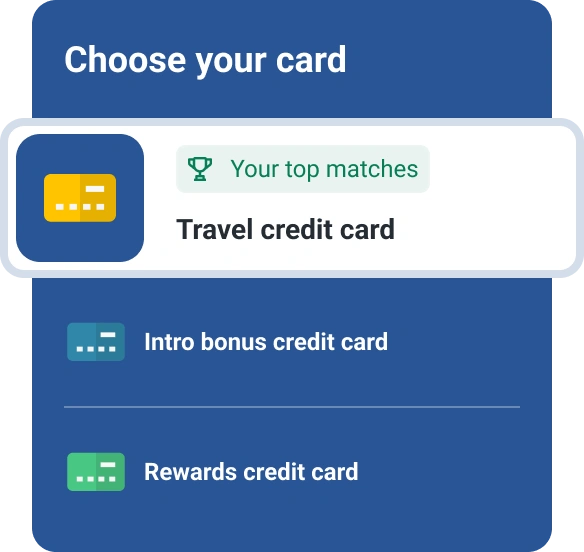How Travel Hacking With Credit Cards Affects Your Credit
Quick Answer
Travel hacking often involves opening multiple credit cards, which can hurt your credit scores at first. But if you make your payments on time and maintain a low credit utilization ratio, having multiple credit cards isn’t necessarily bad for your credit scores in the long run.

Traveling for free sounds like a dream, especially when you can book luxury stays and first-class flights. That's the ultimate goal of travel hacking, a process that takes advantage of travel credit card rewards systems for points and miles that can be used to cover trips. However, because travel hacking often involves opening lots of credit cards, you'll want to understand how it could affect your credit.
What Is Travel Hacking?
Travel hacking involves maximizing the number of hotel and airline loyalty programs you can earn points and miles from, and figuring out the redemption options that give you the most value.
The goal of travel hacking can vary from person to person. For some, travel hacking is all about sitting in first class with a glass of champagne. For others, it's getting the entire family to grandma's without spending any cash.
Some common travel hacking techniques include:
- Signing up for travel credit cards: Travel credit cards could offer a large intro bonus to new cardholders, which can be a helpful way to kickstart your awards accumulation or help you earn extra rewards toward your next trip.
- Using multiple rewards cards: Travel hackers often have multiple rewards cards and will try to use whichever card offers them the most rewards on a purchase. Some may also have cards that they only use for specific trips, such as airline and hotel credit cards that they use to book flights and hotel stays.
- Looking for additional earnings opportunities: There are other ways to earn rewards, such as rewards portals that allow you to earn extra miles and points when shopping online. Many frequent traveler programs are also part of dining programs that will give you bonus rewards when you spend money at certain restaurants.
- Redeeming rewards for high-cost travel: Earning is only half of the game. Travel hackers also look for the best way to redeem rewards. They may even find little-known redemption options, like using miles from one frequent-flier program to book a discounted award flight on a partner airline.
Travel hackers may also frequently use the cardholder benefits that come with certain credit cards, such as free access to airport lounges or a statement credit for a Global Entry or TSA PreCheck membership.
Is Travel Hacking Legal?
Travel hacking is legal, and you can find high-value redemption options if you earn enough rewards and learn the ins and outs of various programs. Travel loyalty programs and credit card issuers also expect you to earn and use your rewards—that's why they offer them in the first place.
However, some types of activity could be a violation of the loyalty program or credit card's terms of service. This could land you in hot water.
For example, if someone is churning credit cards—frequently opening credit cards solely for the initial bonuses—the credit card issuer might decide to close their account and take back their rewards. There have even been cases of banks completely ending their relationship with a person and closing all their credit cards and bank accounts due to perceived abuse of the system.
Does Travel Hacking Hurt Your Credit?
Travel hacking might hurt your credit in several ways if you frequently open new credit cards, but it's not necessarily bad for your credit in the long run. To understand why, it's helpful to consider the various ways that opening and closing credit cards can affect your credit.
How Travel Hacking Might Hurt Your Credit
- Applying for credit cards leads to hard inquiries. Submitting a credit card application typically leads to a hard inquiry, which might hurt your credit scores temporarily. The effect compounds with multiple credit card inquiries, which might result in a larger score drop. That's true even if some of your applications are denied.
- New cards lower the average age of accounts. Opening new accounts will lower the average age of the credit accounts in your credit file, which can also hurt your credit scores.
- You might miss payments on your new cards. Managing multiple credit cards can be difficult, and late payments can result in fees and penalties. Once you're 30 days past due, the credit card issuer can also report the late payment to the credit bureaus, and the late payment can stay on your credit report for up to seven years.
How Travel Hacking Might Help Your Credit
- New accounts thicken your credit files. Your credit score might be lower if you only have a couple of credit accounts in your credit report. Opening new accounts can help thicken your file, although it won't necessarily lead to a large score increase.
- More available credit could improve your credit utilization ratio. Opening new credit cards will increase your available credit, which could lower your credit utilization rate and improve your credit scores. But if you max out your new card while trying to qualify for an intro bonus, that might hurt your utilization and credit scores in the short term.
- It can increase the average age of your accounts in the long run. Opening new accounts might lower the average age of your credit accounts today, but the accounts will age with you going forward. Even closed accounts, which stay on your credit report for up to 10 years if they were closed in good standing, get included in this calculation.
How to Start Travel Hacking Responsibly
If you want to start travel hacking without putting your accounts or credit at risk, a slow and steady approach might be a good option. You could:
- Start by focusing on your credit. You often need a good to excellent credit score to qualify for the best premium travel rewards cards. Check your credit to see where you're at, and focus on improving your credit score if you're not there already.
- Choose a rewards program that makes sense. Card issuer rewards programs are often ideal for travel hacking because you can transfer your points to partner airline and hotel programs based on which one offers you the best deal. Consider which airlines fly out of your nearest airport, the types of hotels you like to stay at and the recurring trips that you take. Then, review the different programs to see if one is a clear winner.
- Wait for good intro bonus opportunities. You can often only earn the intro bonus on a credit card once every few years—or once in a lifetime with certain card issuers—so wait until there's an especially high offer to apply. Also, be sure you can qualify for the bonus without overspending.
- Find cards that complement each other. Having multiple credit cards from the same issuer can help you quickly accumulate rewards. For example, you might use a card offering bonuses on dining and travel for those purchases and a flat-rate rewards card for everything else. You can often transfer rewards points between cards that are in the same program, and sometimes to other household members' cards as well.
- Learn how to optimize redemptions. Read travel and rewards blogs to learn all about the rewards program and the best transfer and redemption options.
Prepare for Your Next Adventure
You can check your Experian credit report for free and get the included FICO® ScoreΘ to see where you stand. Your Experian membership also comes with free credit monitoring, which makes tracking changes in your credit report and FICO® Score easy. If you're looking for a new travel card, Experian can match you with some of the top credit cards based on your criteria and unique credit profile.
Get the rewards you deserve
Cash back? Miles? Points? Whatever suits your goals, we can help match you to personalized rewards card offers. Start with your FICO® Score for free.
See your offersAbout the author
Louis DeNicola is freelance personal finance and credit writer who works with Fortune 500 financial services firms, FinTech startups, and non-profits to teach people about money and credit. His clients include BlueVine, Discover, LendingTree, Money Management International, U.S News and Wirecutter.
Read more from Louis

